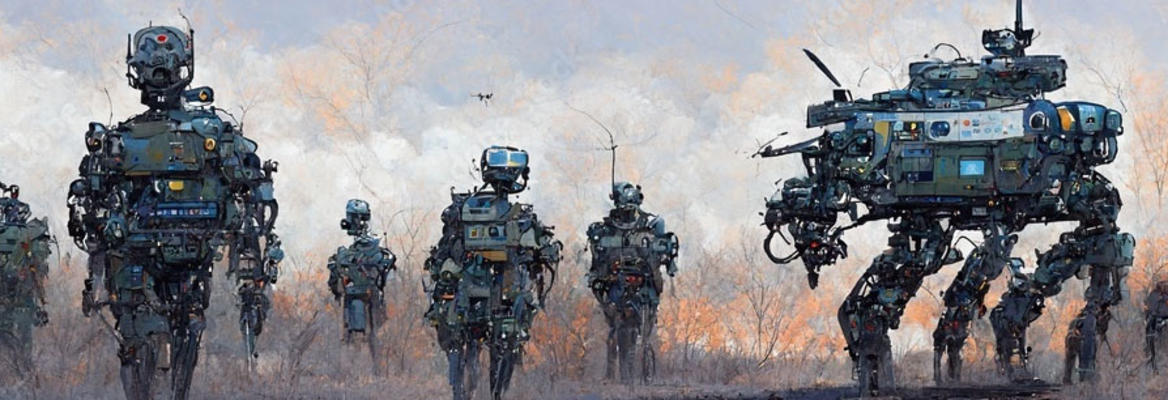Human ego and emotionality play a bigger role in war than we often admit. Human pride, grief, contempt, hate and shame have all changed the course of history time and time again. As AI and human enhancement continue to evolve, they will be used to hack human ego and emotionality, leading to a step-change in the brutality and illegitimacy of war, writes Nayef Al-Rodhan.
The Prussian military strategist Carl von Clausewitz saw uncertainty and fear as essential ingredients of war. But how does human fallibility, which is at the core of classic theories of war dating back to Sun Tzu, play out in a world where AI-powered military technologies remove human qualities from battle? Will emerging AI tools such as deepfakes, and other deceptive technologies, deepen the fog of war? Are these transformative technological developments changing the very nature of war? Will the extreme brutality enabled by highly destructive military technologies create multi-generational hate, vengeance, deep ethnic and cultural schisms and hinder reconciliation, reconstruction and coexistence? These questions have been made ever-more pressing by the current Russia-Ukraine and Israeli-Palestinian conflicts. Will these developments change the very nature of war? These questions are fundamental to the sustainability of human civilisation, here on earth as well as increasingly in Outer Space. To answer them, we need to examine the benefits, dangers and limitations of the new methods of war - and examine how our human nature shapes, and is shaped by, the way we fight.
 SUGGESTED READING
Why we have the future of AI wrong
By Susan Hespos
SUGGESTED READING
Why we have the future of AI wrong
By Susan Hespos
Contemporary research in neuroscience has provided valuable insights into human behaviour, with direct consequences for state behaviour, cooperation and conflict. Contrary to previous assumptions about the rationality of human behaviour, neuroscience has shown that emotions and emotionality play a central role in cognitive functions and in rational decision-making. Studies show that human beings are neither inherently moral, nor immoral. They are, rather, amoral, and influenced by personal and political circumstances, where their moral compass is governed primarily by “perceived emotional self-interest”.
___
In short, our appetite for primordial power is part of who we are.
___
Neuroscience shows that human beings are critically predisposed for survival. This means that we are fundamentally egoistic. It is this evolutionary desire to survive and thrive, with constant competition, mistrust and fear of the other, that inspires the aspiration to dominate others. In short, our appetite for primordial power is part of who we are. Neurochemically speaking, feelings of power are linked to the release of dopamine, amongst other chemicals, in the mesolimbic reward centre of the brain. Dopamine is the same neurochemical that is responsible for feelings of pleasure and rewards, as well as the “highs” of all forms of addiction, including drug addiction, social media and gambling. That is why power has an addictive effect on the brain, comparable to that of a drug. It leads human beings to do anything to seek it, enhance it – and prevent losing it.





















Join the conversation